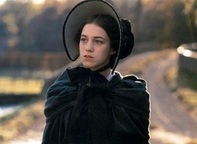
Inaugural Blog Assignment
Please read the following extremely brief article:
The Position of Victorian Middle Class Women
http://www.victorianweb.org/authors/bronte/cbronte/73cbwomen.html
Respond:
In the blog comments, please write a post that answers the following
question (s):
1. How does social class affect Jane in your assigned pages (155-207), specifically her
interactions with and reactions to Blanche Ingram and her cohort? Analyze the
struggle that arises between Jane's sense of individuality and independence, and
the obligation she feels to "be good" and follow the rules of social class set
out by Victorian society.
2. Length: 2-3 paragraphs. Must include at least one direct quote, properly cited.
3. Please also reply to at least one of your classmate's comments.
DUE: Tuesday 1/10, by midnight
I look forward to reading your thoughts!
 RSS Feed
RSS Feed